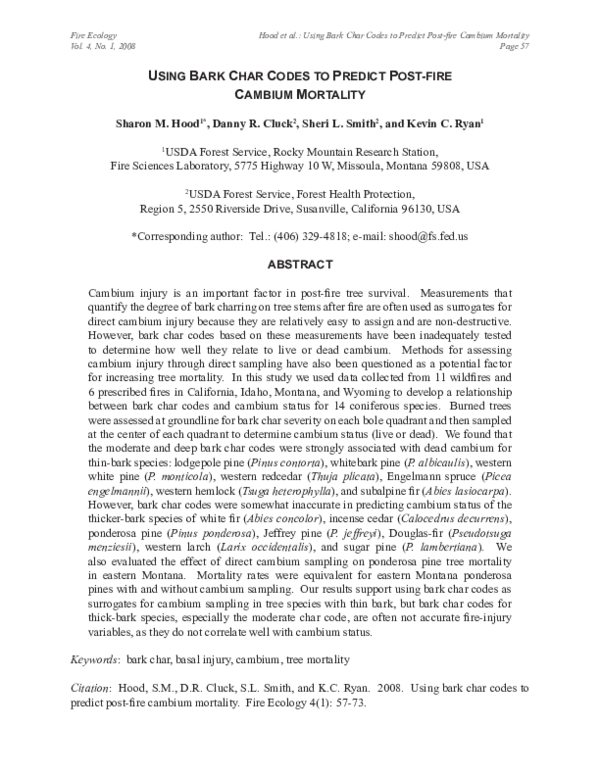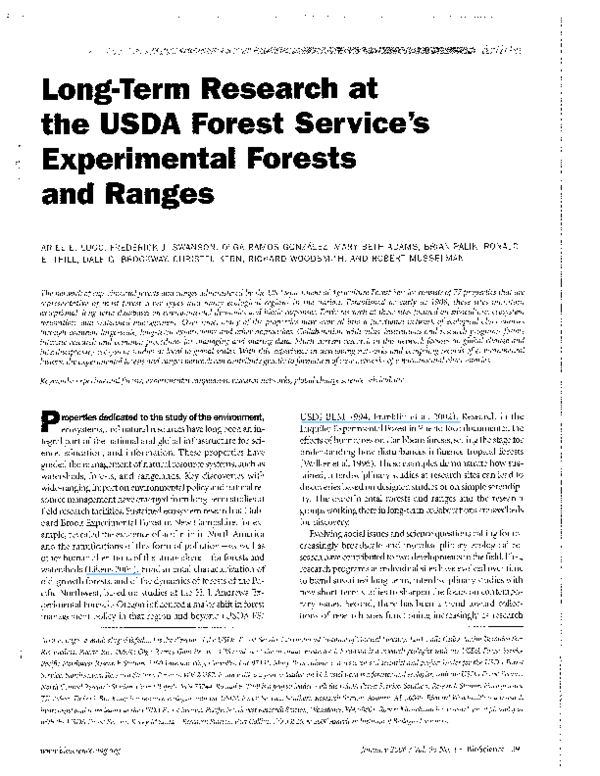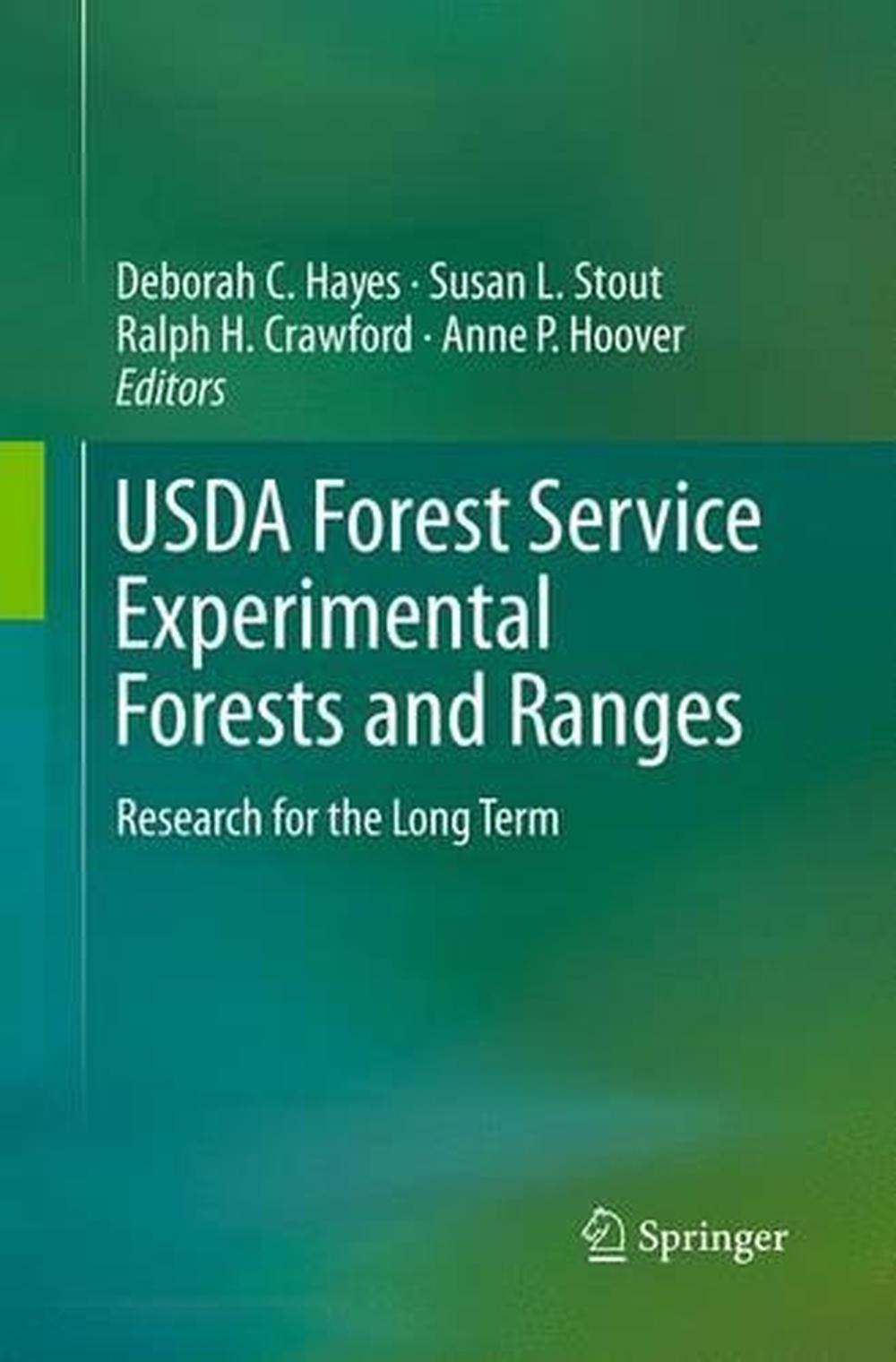
Latest Publications
· The ISSN of USDA Forest Service - Research Papers PNW-RP is ISSN stands for International Standard Serial Number. An ISSN is a unique code of 8 digits. It is used for the recognition of journals, newspapers, periodicals, and magazines in all kind of forms, be it print-media or electronic Forest Service Research & Development The Research and Development arm of the Forest Service, a component of the U.S. Department of Agriculture, works at the forefront of science to improve the health and use of our Nation's forests and grasslands. Research has been part of the Forest Service mission since the agency's inception in Read more An assessment of the vegetation resources of southwest Alaska was made by using an inventory design developed by the Pacific Northwest Research Station.

Breadcrumb
An assessment of the vegetation resources of southwest Alaska was made by using an inventory design developed by the Pacific Northwest Research Station. Murray, R.B. and Mayland, H.F. and Van Soest, P.J. () Growth and Nutritional Value to Cattle of Grasses on Cheatgrass Range in Southern Idaho. USDA Forest Service Research Paper No. INT 57 pp. This list was generated on Sat Jun 11 MDT · The ISSN of USDA Forest Service - Research Papers PNW-RP is ISSN stands for International Standard Serial Number. An ISSN is a unique code of 8 digits. It is used for the recognition of journals, newspapers, periodicals, and magazines in all kind of forms, be it print-media or electronic

Technical Bulletin
An assessment of the vegetation resources of southwest Alaska was made by using an inventory design developed by the Pacific Northwest Research Station. Advances in molecular technology provide an accessible set of tools to 1) help forest pathologists detect, identify, and monitor forest pathogens, 2) examine the evolutionary relationships and global distributions of forest pathogens and their hosts, 3) assess the diversity and structure of host and pathogen populations, and 4) evaluate the structure and function of genes, as well as · The ISSN of USDA Forest Service - Research Papers PNW-RP is ISSN stands for International Standard Serial Number. An ISSN is a unique code of 8 digits. It is used for the recognition of journals, newspapers, periodicals, and magazines in all kind of forms, be it print-media or electronic

Account Options
WILLIAM L. JAMES, Physicist Forest Products Laboratory, 1 Forest Service U.S. Department of Agriculture Introduction The dielectric properties of a nonconducting material describe the interaction of the material with electric fields Advances in molecular technology provide an accessible set of tools to 1) help forest pathologists detect, identify, and monitor forest pathogens, 2) examine the evolutionary relationships and global distributions of forest pathogens and their hosts, 3) assess the diversity and structure of host and pathogen populations, and 4) evaluate the structure and function of genes, as well as · The ISSN of USDA Forest Service - Research Papers PNW-RP is ISSN stands for International Standard Serial Number. An ISSN is a unique code of 8 digits. It is used for the recognition of journals, newspapers, periodicals, and magazines in all kind of forms, be it print-media or electronic

You are here
Forest Service Research & Development The Research and Development arm of the Forest Service, a component of the U.S. Department of Agriculture, works at the forefront of science to improve the health and use of our Nation's forests and grasslands. Research has been part of the Forest Service mission since the agency's inception in Read more · The ISSN of USDA Forest Service - Research Papers PNW-RP is ISSN stands for International Standard Serial Number. An ISSN is a unique code of 8 digits. It is used for the recognition of journals, newspapers, periodicals, and magazines in all kind of forms, be it print-media or electronic Advances in molecular technology provide an accessible set of tools to 1) help forest pathologists detect, identify, and monitor forest pathogens, 2) examine the evolutionary relationships and global distributions of forest pathogens and their hosts, 3) assess the diversity and structure of host and pathogen populations, and 4) evaluate the structure and function of genes, as well as
No comments:
Post a Comment